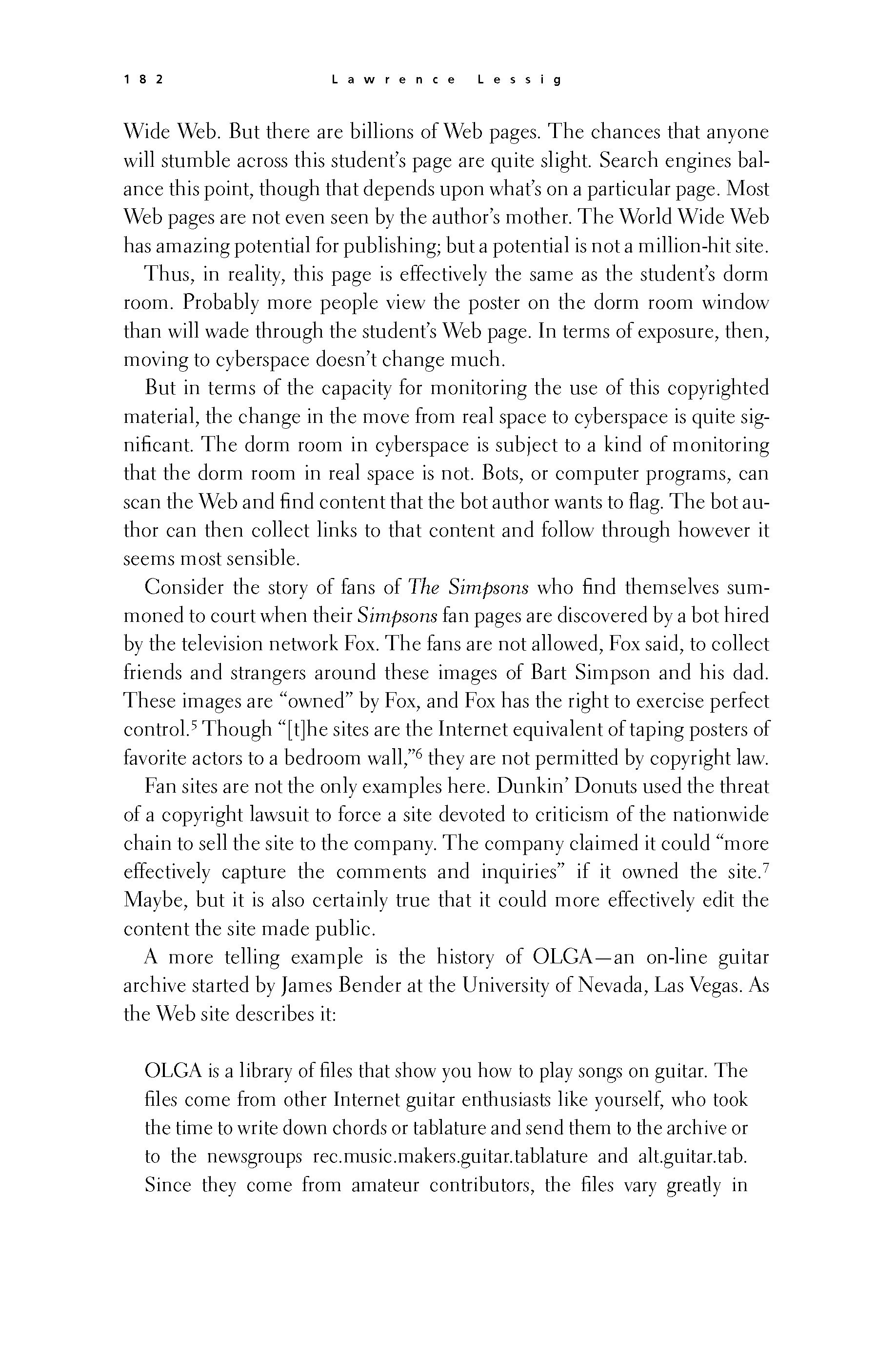 p181 _
-chap- _
toc-1 _
p182w _
toc-2 _
+chap+ _
p183
p181 _
-chap- _
toc-1 _
p182w _
toc-2 _
+chap+ _
p183
Wide Web. But there are billions of Web pages. The chances that anyone
will stumble across this student's page are quite slight. Search engines bal-
ance this point, though that depends upon what's on a particular page. Most
Web pages are not even seen by the author's mother. The World Wide Web
has amazing potential for publishing; but a potential is not a million-hit site.
Thus, in reality, this page is effectively the same as the student's dorm
room. Probably more people view the poster on the dorm room window
than will wade through the student's Web page. In terms of exposure, then,
moving to cyberspace doesn't change much.
But in terms of the capacity for monitoring the use of this copyrighted
material, the change in the move from real space to cyberspace is quite sig-
nificant. The dorm room in cyberspace is subject to a kind of monitoring
that the dorm room in real space is not. Bots, or computer programs, can
scan the Web and find content that the bot author wants to flag. The bot au-
thor can then collect links to that content and follow through however it
seems most sensible.
Consider the story of fans of _The_Simpsons_ who find themselves sum-
moned to court when their _Simpsons_ fan pages are discovered by a bot hired
by the television network Fox. The fans are not allowed, Fox said, to collect
friends and strangers around these images of Bart Simpson and his dad.
These images are "owned" by Fox, and Fox has the right to exercise perfect
control.[11-5] Though "[t]he sites are the Internet equivalent of taping posters of
favorite actors to a bedroom wall,"[11-6] they are not permitted by copyright law.
Fan sites are not the only examples here. Dunkin' Donuts used the threat
of a copyright lawsuit to force a site devoted to criticism of the nationwide
chain to sell the site to the company. The company claimed it could "more
effectively capture the comments and inquiries" if it owned the site.[11-7]
Maybe, but it is also certainly true that it could more effectively edit the
content the site made public.
A more telling example is the history of OLGA -- an on-line guitar
archive started by James Bender at the University of Nevada, Las Vegas. As
the Web site describes it:
____ OLGA is a library of files that show you how to play songs on guitar. The
____ files come from other Internet guitar enthusiasts like yourself, who took
____ the time to write down chords or tablature and send them to the archive or
____ to the newsgroups rec.music.makers.guitar.tablature and alt.guitar.tab.
____ Since they come from amateur contributors, the files vary greatly in
[[182]]
p181 _
-chap- _
toc-1 _
p182w _
toc-2 _
+chap+ _
p183